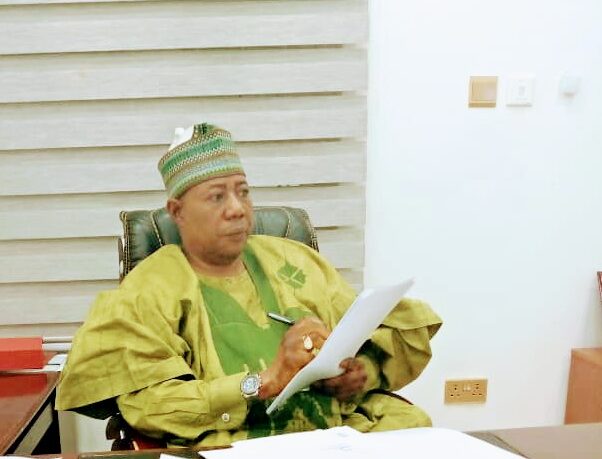The Renewed Hope government led by President Bola Ahmed Tinubu is only four months old and is far too infinitesimal for results to start showing, especially, as it concerns industrialisation. However, the period is enough time to see the direction of the government on industrialisation and investment drive to Nigeria. Analysts have said the steps taken so far are encouraging, and that if the president is able to successfully implement his plans, they could have a major impact on the Nigerian economy and create millions of new jobs.
As an industrial forensics security expert, my aim in this article is to examine the efforts so far, to see areas that needs recalibration or to sustain momentum. The essence of my engagements is not to apportion blames but to bridge the gap of understanding/communication between government’s industrialisation policy and Nigerians.
The task of industrializing an economy, especially that of Nigeria, with over 200 million people is not a tea party. More so that concatenation of events like insecurity, high cost of doing business, decay in infrastructures, epileptic electricity supply, unfriendly business policies of government have de-marketed and made the country unattractive to Foreign Direct Investment (FDI).
Abreast of the humongus challenges that faces the economy, President Tinubu and Vice President Kashim Shettima did not leave anything to chance. They have even assumed the status of marketer-in-chief of Nigeria. The principal target of this economic diplomacy is to assure global investors that Nigeria is ready for business. You may say talk is cheap, but Tinubu backed words with actions by dismantling the cumbersome business policies that hitherto scared investors away from Nigeria.
These efforts are beginning to payoff with recent moves by Indian investors for significant investment amounting to nearly $14 billion U.S. dollars, a commitment Tinubu extracted during the Nigeria-India Presidential Roundtable and Conference held on the sidelines of the G-20 Summit in New Delhi, India.
Right from his electioneering campaign, President Tinubu did not leave us in doubt as to his commitment to industrialisation, given that sound economy is the ultimate measure of the strength of any nation. Tinubu’s government has proven that industrialization is a top priority for his administration. He has outlined a number of initiatives that he is already implementing.
It is now clear that the Nigerian government is working to address the challenges of crawling economy. However, it will take time to start yielding fruits. The potential benefits of industrialization for Nigeria are enormous. Industrialization can create jobs, boost economic growth, and reduce poverty. It can also help to diversify the Nigerian economy and make it less dependent on oil exports.
Overall, the industrial revolution in Nigeria is still in its early stages, but there is a growing momentum towards industrializing the country.
The Tinubu administration has launched a number of initiatives to accelerate industrial development, and there are a number of factors that are contributing to the industrial revolution, such as a growing population, a young and educated workforce, a rich natural resource base, and government support.
However, there are still a number of challenges that need to be addressed, such as the infrastructure deficit, the high cost of doing business, and the lack of skilled labor. The Nigerian government is working to address these challenges, and the potential benefits of industrialization for Nigeria are enormous.
But to successfully kick-start the government’s industrialisation drive, some enabling environment must be created in the following areas: Improving infrastructure: Tinubu has acknowledged that Nigeria’s poor infrastructure is a major obstacle to industrialization. He has pledged to invest heavily in improving the country’s roads, railways, ports and energy grid.
Creating a more conducive business environment: Tinubu has also promised to create a more conducive business environment for investors. This includes reducing regulatory burdens, streamlining the tax system, and protecting intellectual property rights.
Promoting value-added exports: Tinubu has said that he wants to promote the export of value-added goods and services, rather than simply exporting raw materials. This would help to create more jobs and generate more revenue for the country.
Developing specific industrial clusters: Tinubu has also identified a number of specific industrial clusters that he wants to develop, such as manufacturing, agro-processing, and tourism. He has said that he will provide targeted support for these sectors to help them grow and thrive.
To match words with actions, some of the specific steps that President Tinubu’s government has taken to promote industrialization include the launch of a number of infrastructure projects, including the construction of new roads, railways, and power plants. It has also started investing in improving the country’s ports.
Providing tax incentives: The government has introduced a number of tax incentives for investors in certain sectors, such as manufacturing and agriculture.
For the benefit of hindsight, permit me to highlight the various stages of Industrial Revolution. The four industrial revolutions are coal, gas, electronics and nuclear, and the internet and renewable energy. Beginning from 1765 through the present day, we’ve seen an amazing evolution. As we discovered different energy sources and later, digital technologies, the entire landscape of the modern world has been transformed over and over. Here’s a brief primer on the four industrial revolutions.
As Nigeria continues to move through the fourth industrial revolution under President Tinubu, we see a shift to renewable energy such as solar, wind and geothermal. However, the momentum comes not from the shift in energy but from the acceleration of digital technology. The internet and the digital world mean a real-time connection within more and more components of a production line, both inside and outside facility walls.
As the development of the Industrial Internet of Things, cloud technology and artificial intelligence continue, a virtual world will merge with the physical world. Predictive maintenance and real-time data will lead to smarter business decisions and work order solutions for a myriad of companies around the world.
The good thing for Nigeria is that it is highly rated in the internet world. In the area of Renewable Energy, Nigeria stands shoulder high because of abundance of sunlight.
All that is required now is the political will to harness these potentials, which President Tinubu and Vice President Shettima have eminently demonstrated. But all efforts to work out the industrial Revolution would amount to chasing the wind if corruption and other miscellaneous fraud offences are not fought and contained with due deligence
A mind that is limited to reasons and analysis is incapable of perceiving what is truth. It is only a matter of time, Nigeria will attain its full potential in industrialisation.
– Ibrahim is director, Communications and Strategic Planning of the Presidential Support Committee.



